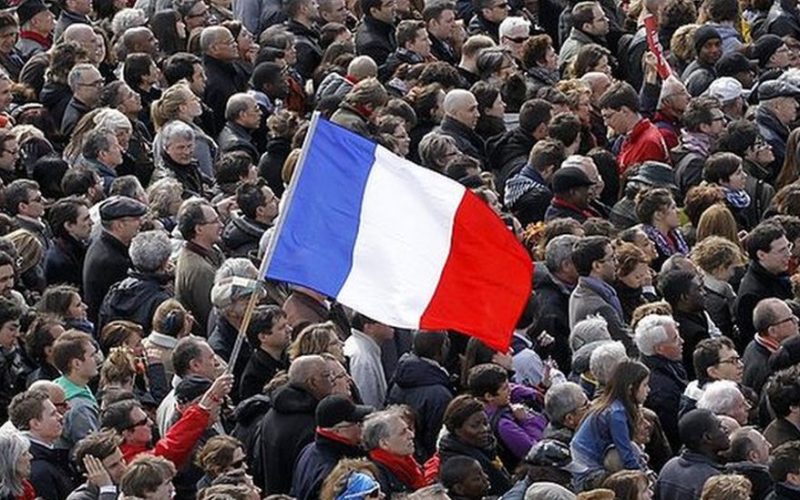Populism has been on the rise across the globe, affecting many countries in Europe, the Americas, and beyond. In recent years, France has been no exception to this trend, with various political figures and parties gaining traction through populist rhetoric and policies. This article explores whether France will succumb to populism by analyzing the current political landscape, the factors driving populism, and the potential outcomes for the country’s future. Additionally, we will include an analysis table and a comparative table to summarize the findings.
The Rise of Populism in France

Historical Context
Populism in France is not a new phenomenon. The country has experienced waves of populist sentiment throughout its history, often tied to periods of economic hardship, social unrest, and political dissatisfaction. The most recent surge in populism can be traced back to the financial crisis of 2008, which left many French citizens disillusioned with traditional political parties and institutions.
Key Populist Figures and Parties
Marine Le Pen and her party, the National Rally (formerly the National Front), are the most prominent examples of populism in France today. Le Pen has successfully tapped into the frustrations of many French citizens, particularly those feeling left behind by globalization and economic change. Other populist figures include Jean-Luc Mélenchon of La France Insoumise, who represents a left-wing variant of populism, and more recently, Éric Zemmour, a far-right commentator turned politician.
Factors Driving Populism in France
Economic Inequality
Economic inequality is a significant factor driving populism in France. Many citizens feel that the benefits of globalization and economic growth have not been evenly distributed, leading to a growing divide between the wealthy elite and the working class. This economic disparity fuels resentment and a desire for change, making populist messages appealing.
Immigration and National Identity
Immigration is another critical issue in the populist discourse in France. Populist leaders like Le Pen and Zemmour often emphasize the perceived threats posed by immigration to French national identity and security. This rhetoric resonates with voters who are concerned about cultural change and the integration of immigrants into French society.
Distrust in Political Institutions
A growing distrust in traditional political institutions and leaders has also contributed to the rise of populism. Many French citizens feel that the established parties, both on the left and right, have failed to address their concerns and have become disconnected from the realities of everyday life. This sentiment has led to increased support for anti-establishment figures who promise to shake up the status quo.
Potential Outcomes for France
Scenario 1: Populist Victory
One possible outcome is that a populist candidate wins the presidency or gains significant power in the government. This scenario could lead to major policy shifts, particularly in areas like immigration, trade, and relations with the European Union. A populist victory could also exacerbate social tensions and further polarize French society.
Scenario 2: Populist Influence
Even if a populist candidate does not win outright, their influence could still shape French politics. Mainstream parties may adopt more populist rhetoric and policies to attract voters, leading to a shift in the political landscape. This could result in a more nationalist and protectionist stance on key issues.
Scenario 3: Rejection of Populism
A third possibility is that French voters ultimately reject populism, opting instead for more centrist or traditional candidates. This scenario would likely involve a reinvigoration of the established parties and a focus on addressing the underlying issues driving populist sentiment, such as economic inequality and political reform.
Analysis Table
| Factor | Impact on Populism | Details |
|---|---|---|
| Economic Inequality | High | Increasing divide between rich and poor fuels resentment and populist appeal. |
| Immigration | High | Concerns about cultural change and integration drive support for populist policies. |
| Distrust in Political Institutions | High | Perception of disconnect between elites and ordinary citizens boosts populism. |
| Media Influence | Moderate | Populist messages amplified through traditional and social media. |
| Globalization | Moderate | Economic and cultural impacts of globalization contribute to populist sentiments. |
| Political Scandals | Moderate | Scandals involving established parties undermine trust and boost populist candidates. |
| Social Unrest | High | Protests and social movements reflect and fuel populist discontent. |
| Leadership Charisma | Moderate | Charismatic leaders like Le Pen and Zemmour attract significant followings. |
Comparative Table
| Country | Populist Movement | Key Issues | Outcome |
|---|---|---|---|
| United States | Trumpism | Immigration, trade, economic inequality | Trump elected in 2016, significant influence on GOP |
| United Kingdom | Brexit Movement | EU membership, immigration, sovereignty | Brexit referendum passed, UK left EU |
| Italy | Five Star Movement, Lega Nord | Corruption, EU membership, economic policy | Populist coalition government formed |
| Germany | Alternative for Germany (AfD) | Immigration, national identity, EU policy | AfD gained seats in Bundestag |
| Brazil | Bolsonaro’s Movement | Crime, corruption, economic policy | Bolsonaro elected president |
| France | National Rally, La France Insoumise, Éric Zemmour | Economic inequality, immigration, distrust in institutions | Populist influence growing, uncertain outcome |
Conclusion
France is at a crossroads, facing the potential for significant political change driven by populist movements. The rise of figures like Marine Le Pen, Jean-Luc Mélenchon, and Éric Zemmour reflects deep-seated frustrations with economic inequality, immigration, and distrust in political institutions. While the future remains uncertain, the potential outcomes range from a populist victory to a rejection of populism. Regardless of the path chosen, it is clear that addressing the underlying issues driving populist sentiment will be crucial for the stability and unity of France.
In conclusion, the question of whether France will fall to populism is complex and multifaceted. By understanding the factors driving populism and examining potential outcomes, we can gain a clearer picture of the challenges and opportunities facing France in the coming years.












